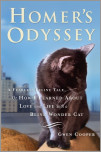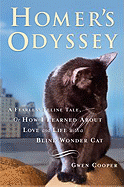Notes: Madoff's Other Secret; Textbook Rentals
One upcoming book about swindler Bernie Madoff has an unusual twist: in Madoff's Other Secret: Love, Money, Bernie, and Me, Sheryl Weinstein, onetime CFO at Hadassah, the Jewish volunteer organization, says she had an affair with Madoff for 20 years that spanned a period when Hadassah was investing heavily in Madoff's Ponzi scheme, the New York Times reported. Published by St. Martin's, the book appears August 25.
Weinstein worked for Hadassah for 12 years, ending in 1997, after which the organization made no more investments in Madoff's company. When the scheme collapsed, Hadassah had millions of dollars on the books with Madoff but was one of the investors that withdrew more than it invested. Weinstein and her family, however, said they had invested all their assets with Madoff and lost them.
---
The New York Times surveys college textbook rental programs that are being instituted or tested by several publishers and booksellers. Among them: a program by Cengage, formerly Thomson Learning, announced yesterday under which the company will rent textbooks to students at 40%-70% discounts and will give them immediate e-access to the first chapters. At the end of the rental period, students may either return or buy the printed book.
Follett and Barnes & Noble College are testing rental programs at some of their college stores.
The rental programs are meant to reduce students' textbook costs and "give both publishers and textbook authors a way to continue earning money from their books after the first sale, something they do not get from the sale of used textbooks."
---
Knopf noted yesterday that Julia Child's Mastering the Art of French Cooking, originally published in 1961 and a backlist seller ever since, is now "a national bestseller for the first time," thanks, of course, to the movie Julie & Julia, based on the book by Julie Powell. (Oh and it's a Nora Ephron film starring Meryl Streep.)
In nearly 50 years, the book has sold more than a million copies; last year some 25,000 copies of the hardcover and trade paperback editions were sold. After four reprintings for the movie, three of which were in the last week, more than 225,000 copies of Mastering the Art of French Cooking have been added to the mix.
---
Random House is releasing an e-version of The Lost Symbol by Dan Brown simultaneously with the publication of the $29.95 book on September 15, meaning that the publisher is not challenging Amazon's $9.99 pricing policy on e-books for the Kindle. The Wall Street Journal noted, "Some in publishing suggested that Amazon might have responded [to a later e-book pub date] by disengaging the 'buy' button for the physical edition of Mr. Brown's book."
Random House explained its decision by saying that "all of our security and logistical issues surrounding the e-book of The Lost Symbol have been resolved."
Next similar difficult decision for a publisher: Scribner's launch November 10 of Stephen King's Under the Dome, priced at $35.
---
The last of Green Apple Books's Book vs. Kindle smackdown videos features Daniel Handler, aka Lemony Snicket, in an apocalyptic moment when a fan at a signing asks him to sign his Kindle.
---
The Examiner examines four bookstores in Knoxville, Tenn., including Book Eddy, Carpe Librum, Borders and Barnes & Noble.
---
The Los Angeles Times's Jacket Copy reports that former president Bill Clinton wrote to the blog to make a small correction and noted what he has been reading lately (with his annotations):
1. Steven Johnson's The Invention of Air and The Ghost Map, esp. #1
2. Tom Zoellner's Uranium
3. Malcolm Gladwell's Outliers, his best book.
4. John Bogle's Enough
5. Selden Edwards' The Little Book
6. Richard North Patterson's Eclipse
7. Andrew Greeley's The Cardinal Sins (now almost 30 years old)






IPC.0204.S3.INDIEPRESSMONTHCONTEST.gif)






IPC.0211.T4.INDIEPRESSMONTH.gif)
 Julie Buxbaum, author of The Opposite of Love, published last year by Dial Press, and After You, published this month by Dial, is a recovering lawyer and a full-time novelist. Her work has been translated into 18 languages. Originally from New York, Julie currently lives in London, where she has elevated complaining about the weather to an art form. Visit her online at
Julie Buxbaum, author of The Opposite of Love, published last year by Dial Press, and After You, published this month by Dial, is a recovering lawyer and a full-time novelist. Her work has been translated into 18 languages. Originally from New York, Julie currently lives in London, where she has elevated complaining about the weather to an art form. Visit her online at  What if a veterinarian contacts you with the following proposition: she has just surgically removed the eyes of a four-week-old male kitten with a severe eye infection; he is otherwise healthy; nobody else seems about to step up to save a blind eyeless baby from euthanasia; would you be willing to meet the kitten and consider taking him home? Gwen Cooper, who had two female cats already, was in dire financial straits and had just broken up with a boyfriend, got such a call. She was willing to take a look but didn't want to promise anything; in her rational mind, she wanted to pass on the offer.
What if a veterinarian contacts you with the following proposition: she has just surgically removed the eyes of a four-week-old male kitten with a severe eye infection; he is otherwise healthy; nobody else seems about to step up to save a blind eyeless baby from euthanasia; would you be willing to meet the kitten and consider taking him home? Gwen Cooper, who had two female cats already, was in dire financial straits and had just broken up with a boyfriend, got such a call. She was willing to take a look but didn't want to promise anything; in her rational mind, she wanted to pass on the offer. 